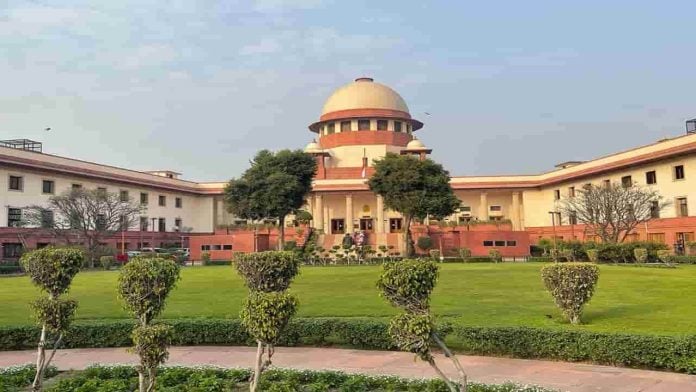The Union of India on Tuesday apprised the Supreme Court that it was considering forming an expert committee to determine whether the execution of death penalty through hanging was proportionate and if there were other better suited alternatives for executing the death penalty.
Appearing for the Central government, Attorney General R. Venkataramani told the Apex Court
that he had recommended the formation of an expert committee to decide on whether any alternatives existed to execute the death penalty, which were less painful than hanging. The government has been mulling over the members for the said expert committee, he added.
The Bench of Chief Justice of India D.Y. Chandrachud and Justice J.B. Pardiwala, while taking into account the submissions made by the AG, said that the matter will now be heard after vacations in July.
The Apex Court passed the order on a petition filed by Advocate Rishi Malhotra, seeking to abolish the present practice of executing a death row convict by hanging, alleging that it involved ‘prolonged pain and suffering’. The PIL sought replacing the execution method with intravenous lethal injection, shooting, electrocution or gas chamber, in which a convict would die in a matter of minutes.
Earlier in March, the Apex Court had decided to form an expert committee to find out if death by hanging was the most suitable and painless method for the execution of death penalty.
A Bench comprising CJI Chandrachud and Justice P.S. Narasimha had directed the AG to provide details on whether there was any data or study which was undertaken regarding the impact and pain caused during death by hanging. The Apex Court further sought to know from the AG whether it was the most suitable method to be used at present.
AG Venkataramani was directed to place before the court, data on the impact of death by hanging, pain caused, the period taken for such death to take place and the availability of resources to effectuate such hanging by death.
The Bench showed keen interest in knowing about the scientific suggestions on this method being the best or about any other way, which would be more suitable to uphold human dignity.
The top court of the country suggested that it could form a committee to conduct a study into the same if the government has not undertaken such a study.
If the Centre has not done any study on this, then a committee can be formed having experts from two national law universities like NLU Delhi, Bangalore or Hyderabad, some doctors from AIIMS, distinguished people across the country and some scientific experts, it suggested.
It may be concluded that death by hanging was the most appropriate, but the conclusion should be aided by a study to authenticate the belief, added the Apex Court.
Appearing in person, petitioner Malhotra argued that the process in India of hanging till death was absolutely cruel and inhumane.
Justice Narasimha said he agreed that there should be dignity in death and it should be as painless as possible and hanging seemed to satisfy the same.
He also added that hanging seems to satisfy both these conditions, but talking about lethal injections, in the US, it was found that the death was not immediate.
CJI Chandrachud weighed in, by saying that it was important to know about the anecdotal incidents of lethal injection. He added that if it was a heavy weight patient, he would struggle to die.
Advocate Malhotra said that no process was fool-proof, but the alternative methods need to be compared with hanging.
The CJI said that in the US, there was strong evidence on the pain caused by lethal injection.
The petitioner-in-person said that there were hardly any hangmen available and for a hanging in Delhi, such a hangman was called from Calcutta or Mumbai.
The petitioner quoted the 187th Report of the Law Commission of India, which said that there was a significant increase in the number of countries where hanging has been abolished and substituted by electrocution, shooting or lethal injection as the method of execution.
The plea said as per the report, it was categorically opined that hanging was undoubtedly accompanied by intense physical torture and pain.
The Bench concluded by saying that it was important to see whether this method (execution of death penalty by hanging) satisfied the test of proportionality or whether there was another method which could be adopted, so that death by hanging could be declared as unconstitutional.


